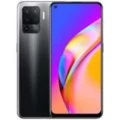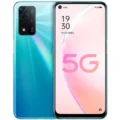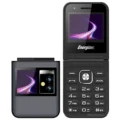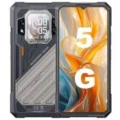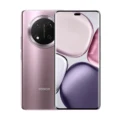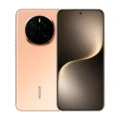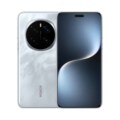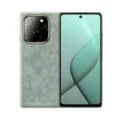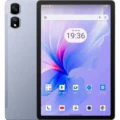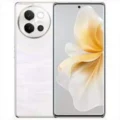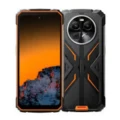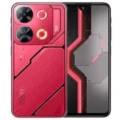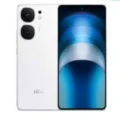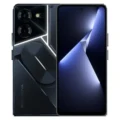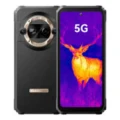Oppo Reno 10x zoom
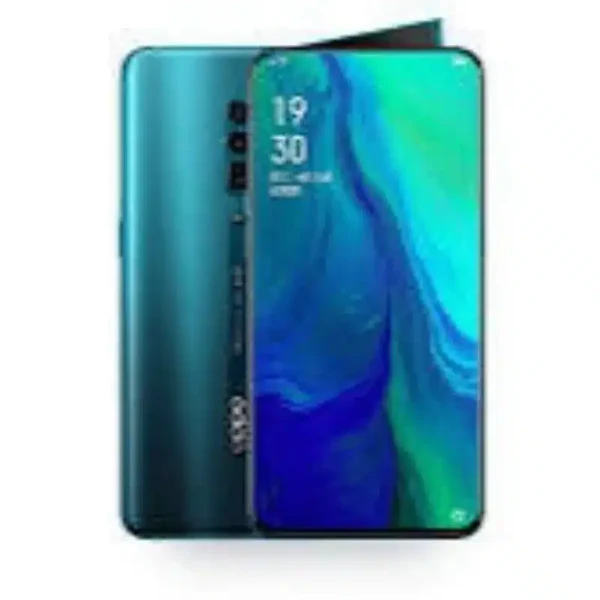

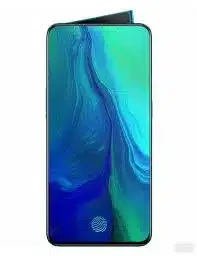
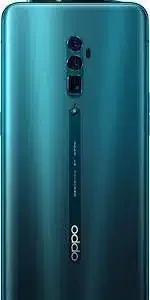
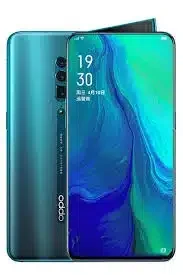

- : 6-12GB RAM Snapdragon 855
- : 6.6" 1080x2340 pixels
- : 4065mAh 20W
- : 48MP 2160p
Oppo Reno 10x Zoom: Unveiling Powerful Zoom in a Sleek Design (2019)
The Oppo Reno 10x Zoom, released in 2019, stood out for its innovative zooming capabilities and stylish design.
Display and Design
The phone boasts a large 6.6-inch AMOLED display with a sharp Full HD+ resolution (1080 x 2340 pixels). The bezel-less design with a hidden front camera creates a nearly all-screen experience. The Reno 10x Zoom comes in sleek color options like Jet Black and Ocean Green.
Camera
The star of the show is the camera system. It features a 48MP main sensor with a periscope telephoto lens offering a remarkable 5x optical zoom and 10x hybrid zoom, allowing you to capture clear close-up shots of distant objects. The phone also includes an ultrawide sensor for capturing expansive landscapes. The front-facing camera cleverly pops up from the top of the phone when needed.
Performance and Battery
The Reno 10x Zoom is powered by the powerful Qualcomm Snapdragon 855 processor, ensuring smooth performance for multitasking and gaming. It comes with either 6GB or 12GB of RAM and 128GB or 256GB of storage, offering various options depending on your needs. The 3,765mAh battery supports 20W VOOC 3.0 fast charging for quick power-ups.
Software
The Oppo Reno 10x Zoom launched with Android 9 Pie with Oppo’s ColorOS 6 on top. Major software updates might be limited due to its release date, so consider checking the available software version before purchasing.
Overall
The Oppo Reno 10x Zoom was a groundbreaking phone in 2019, offering impressive zoom capabilities, a beautiful display, and powerful performance. However, be aware of potentially limited software support and a smaller battery compared to newer phones.
Want to Learn More?
Visit the Oppo Official Website
Still Unsure?
Explore Other Options at the Oppo Store
Specs
Network
| 2G Network GSM 850 / 900 / 1800 / 1900 - SIM 1 & SIM 2 (dual-SIM) CDMA 800 / 1900 |
GSM 850 / 900 / 1800 / 1900 - SIM 1 & SIM 2 CDMA 800 & TD-SCDMA |
| 3G Network |
HSDPA 800 / 850 / 900 / 1700(AWS) / 1900 / 2100 CDMA2000 1xEV-DO |
| 4G Network | 1, 2, 3, 4, 5, 7, 8, 12, 13, 17, 18, 19, 20, 26, 28, 34, 38, 39, 40, 41 |
| Speed |
HSPA 42.2/5.76 Mbps, LTE (5CA) Cat18 1200/150 Mbps |
LAUNCH
| Announced | April, 2026 |
| Status | Available. Released 2019, June |
BODY
| Dimensions | 162 x 77.2 x 9.3 mm (6.38 x 3.04 x 0.37 in) |
| Weight | 210 g (7.41 oz) |
| Build | Glass front (Gorilla Glass 6), glass back (Gorilla Glass 5), aluminum frame |
| SIMs SIM (Subscriber Identity Module) is a small card that contains mobile network subscriber's account information. This allows the phone using the card to attach to a mobile network. The SIM card is most commonly associated with GSM and UMTS mobile networks. Moving a SIM card from one phone to another allows a subscriber to switch mobile phones without having to contact their mobile network carrier. SIM cards can also be used by a phone to store limited amounts of data, such as phone numbers and text messages. | Hybrid Dual SIM (Nano-SIM, dual stand-by) |
Display
| Display Type Display Technology => A number of display technologies and types used in mobile phones => TFT (Thin Film Transistor), IPS (In-Place Switching), OLED (Organic Light Emitting Diode), AMOLED (Active-Matrix Organic Light-Emitting Diode), Super AMOLED (an even advanced version of AMOLED), Resistive Touchscreen (Resistive touchscreens contain two layer of conductive material with a very small gap between them which acts as a resistance), Capacitive Touchsceen (Capacitive touchscreen technology consists of a layer of glass coated with a transparent conductor) | AMOLED |
| Size | 6.6 inches, 108.6 cm2 (~86.8% screen-to-body ratio) |
| Resolution | 1080 x 2340 pixels, 19.5:9 ratio (~387 ppi density) |
| Protection Display Protection => Gorilla Glass is a special alkali-aluminosilicate glass shield with exceptional damage resistance that helps protect mobile displays from scratches, drops, and bumps of everyday use, It is always better to go for a smartphone with Gorilla Glass for that added protection and peace of mind. | Corning Gorilla Glass 6 |
PLATFORM
| Operating System OS => Every computer system run on a base software called Operating System (OS). Operating System controls all basic operations of the computer (such as smartphone, PDAs, tablet computers and other handheld devices). The Operating System allows the user to install and run third party applications (apps), apps are used to add new functionality to the device. | Android 9.0 (Pie), upgradable to Android 11, ColorOS 11 |
| Chipset Chipset is a group of integrated circuits designed to perform one or a more dedicated functions, often with real time computing constraints, Popular smartphones are equipped with more advanced embedded chipsets that can do many different tasks depending on their programming. | Qualcomm SM8150 Snapdragon 855 (7 nm) |
| CPU CPU (Central Processing Unit) mostly known as processors, CPU processes instructions in order to carry out certain functions that make your device operate properly. Processors are often described as the brain of computers, smartphones and tablets, Smartphones and tablets rely on processors to carry out their every task, Processors are an incredibly important factor in selecting any type of computing device, including your smartphone. | Octa-core (1x2.84 GHz Kryo 485 & 3x2.42 GHz Kryo 485 & 4x1.78 GHz Kryo 485) |
| GPU GPU (Graphics Processing Unit) is a single-chip processor designed to rapidly manipulate and alter memory to accelerate the creation of images in a frame buffer intended for output to a display, This includes things such as lighting effects, object transformations, and 3D motion. | Adreno 640 |
MEMORY
| Card Slot Memory Card Slot is a special slot for inserting a memory card. Memory cards allow you to expand the phone's built-in memory, A memory card (sometimes called a flash memory card or a storage card) is a small storage medium used to store data such as text, pictures, audio, and video, for use on small, portable or remote computing devices such as mobile phones, mp3 players, digital cameras. | microSDXC (uses shared SIM slot) |
| Internal | 128GB 6GB RAM, 256GB 6GB RAM, 256GB 8GB RAM, 256GB 12GB RAM UFS 2.1 |
MAIN CAMERA
| Cameras Specs Today’s smartphones come equipped with a very comprehensive set of camera related specifications. Our smartphone, for many of us, has become our primary camera due to it being the one we always have with us. |
48 MP, f/1.7, 26mm (wide), 1/2.0", 0.8µm, PDAF, Laser AF, OIS 13 MP, f/3.0, 130mm (periscope telephoto), PDAF OIS, 5x optical zoom, 10x hybrid zoom 8 MP, f/2.2, 16mm (ultrawide) |
| Video | 4K@30/60fps, 1080p@30/60/240fps, gyro-EIS; video rec. only with main camera |
| Camera Features | Dual-LED flash, HDR, panorama |
SELFIE CAMERA
| Cameras Specs Today’s smartphones come equipped with a very comprehensive set of camera related specifications. Our smartphone, for many of us, has become our primary camera due to it being the one we always have with us. |
Motorized pop-up 16 MP, f/2.0, 26mm (wide), 1/3.06", 1.0µm |
| Features | LED flash, HDR |
| Video | 1080p@30fps |
SOUND
| Loudspeaker | Yes, with stereo speakers |
| 3.5mm jack |
No 24-bit/192kHz Hi-Res audio |
COMMS
| WLAN |
Wi-Fi 802.11 a/b/g/n/ac, dual-band, Wi-Fi Direct |
| Positioning |
GPS (L1+L5), GLONASS, BDS, GALILEO, QZSS |
| Bluetooth Bluetooth is a wireless communications technology for exchanging data between mobile phones, headsets, computers and other network devices over short distances without wires, Bluetooth technology was primarily designed to support simple wireless networking of personal consumer devices. | 5.0, A2DP, EDR, LE, aptX HD |
| Infrared Infrared connectivity is an old wireless technology used to connect two electronic devices. It uses a beam of infrared light to transmit information and so requires direct line of sight and operates only at close range. | |
| USB | USB Type-C, OTG |
| NFC NFC (Near field communication) is a set of standards for smartphones and similar devices to establish peer-to-peer radio communications with each other by touching them together or bringing them into proximity, usually no more than a few inches. | |
| Radio |
Features
| Sensors Sensors are electronic components that detects and responds to some type of input from the physical environment. The specific input could be light, heat, motion, moisture, pressure and location, The output is generally a signal that is converted to use in computing systems, a location sensor, such as a GPS receiver is able to detect current location of your electronic device. |
Fingerprint (under display, optical), accelerometer, gyro, proximity, compass |
BATTERY
| Battery Type Battery Type => Cell phones run on various kinds of batteries depending on the manufacturer, phone size or shape and features. There are basically four types of cell phone batteries => Lithium Polymer, Lithium Ion, Nickel Metal Hydride and Nickel Cadmium. | Li-Ion (Lithium Ion) |
| Charging The functionality responsible for recharging batteries in portable devices, such as mobile phones, significantly influences both battery lifespan and the practicality of daily product usage.The charging process, encompassing factors like voltage, current, and completion actions, is contingent upon the battery's size and type.Contemporary battery chargers dynamically adjust charging parameters based on the battery's current charging state. Charging an empty battery poses no safety risk, allowing for a quicker charging process. Consequently, many charging speed benchmarks, including ours, specify the battery level achieved after a 30-minute session on an empty battery.Standard chargers with a power output of 5V/1A, equivalent to 5W, serve as a baseline, with anything surpassing this speed classified as quick or fast charging. | 20W wired |
MISC
| Colors |
Ocean Green, Jet Black, Mist Pink, Ocean Blue |
| Model | CPH1919, PCCM00 |
| Price | About 1020 EUR |
TESTS
| Performance |
AnTuTu: 364220 (v7), 407473 (v8) GeekBench: 10395 (v4.4), 2103 (v5.1) GFXBench: 35fps (ES 3.1 onscreen) |
| Display |
Contrast ratio: Infinite (nominal) |
| Loudspeaker | -24.7 LUFS (Very good) |
| Battery (old) | Endurance rating 107h |
Reviews
Disclaimer Note
We strive to maintain accurate and up-to-date content on our website for general information purposes only. Please refrain from using the material for business, legal, or any other decisions.


